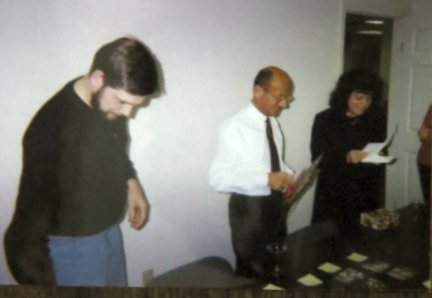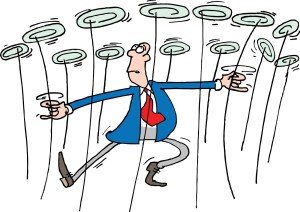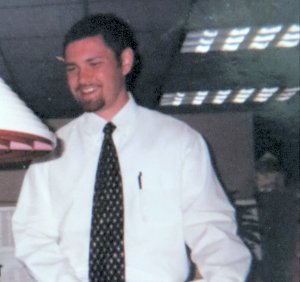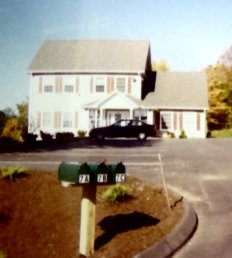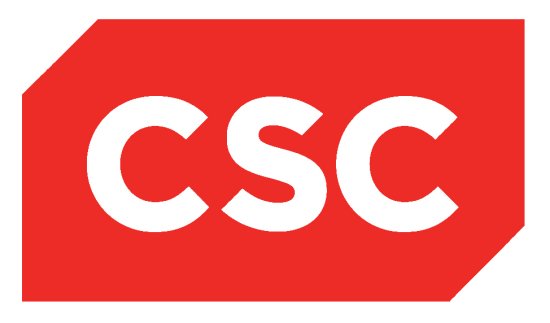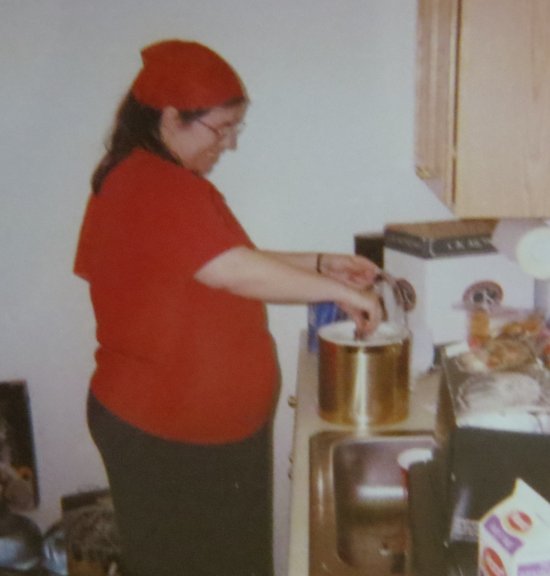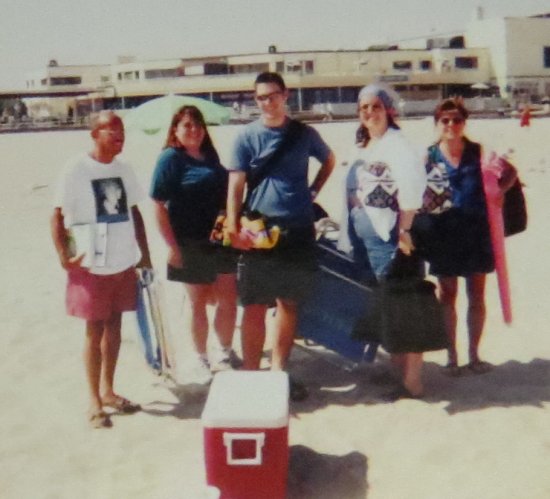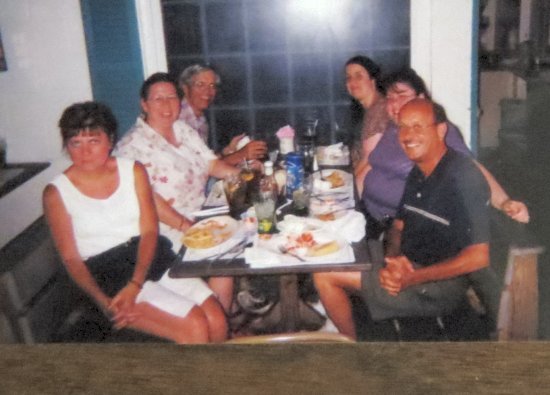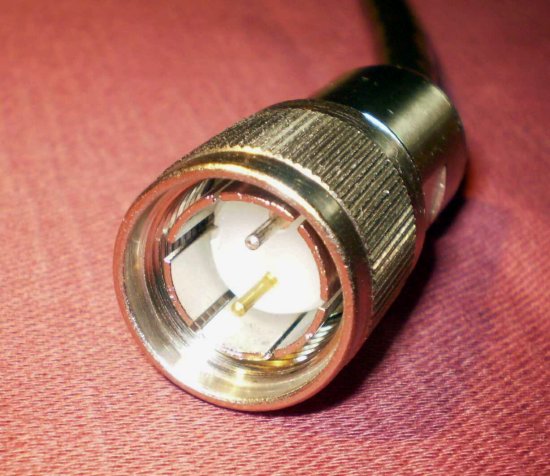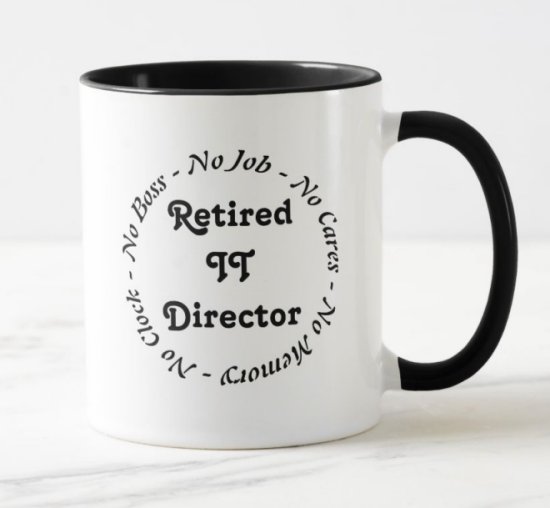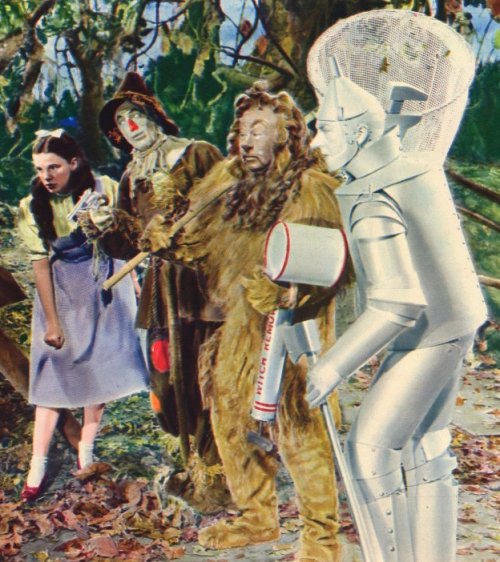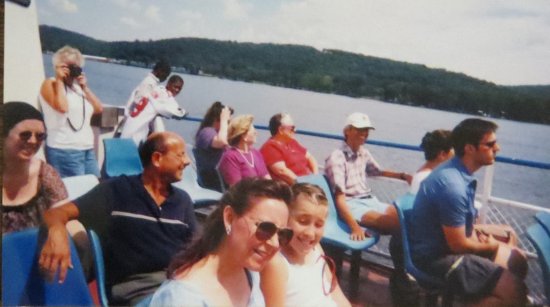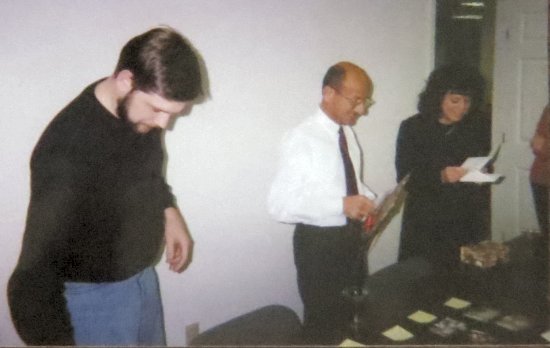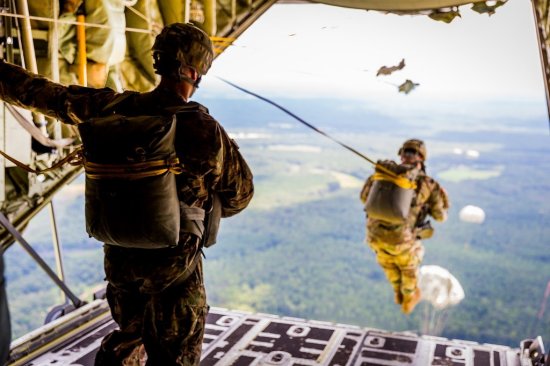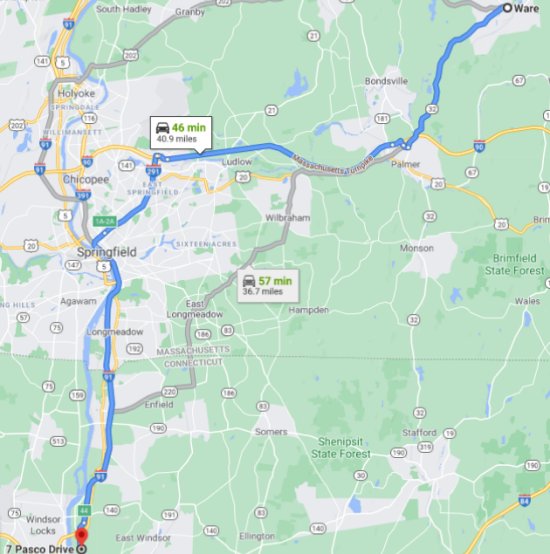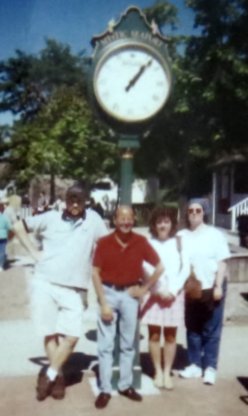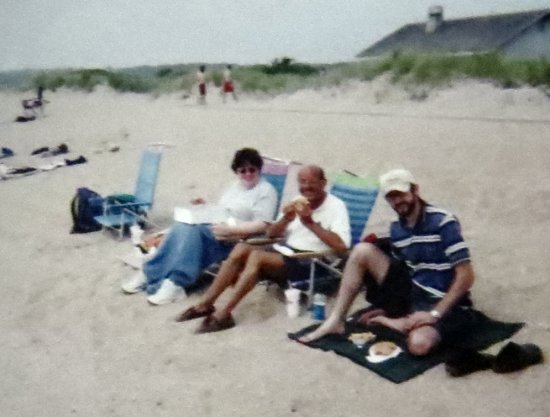Jamie Lisella at TSI. Continue reading
TSI’s fourth major crisis involved my sister Jamie1. In 1985 Jamie married Joseph Lisella Jr. in Chicago, and they moved to Simsbury, CT. Jamie already had two daughters, Cadie (eight years old) and Kelly (a couple of years younger) from her first marriage. The Lisellas had three children: Gina was born in 1988, Anne in 1989, and Joey (Joseph III) in 1991. My relationship with the Lisella family is described here.
Jamie’s LinkedIn page indicates that she worked at TSI from 1993 to 1999. My recollection of those years is spotty2, and TSI’s records from those days are not at hand. So, I have tried to construct a timeline to goad my memory. In 1993 Joey was only two years old. I seriously doubt that Jamie spent many hours per week working for us before September of 1996, when Joey entered the first grade. I honestly do not remember too much about what her role was before that time, and Sue could not remember either.
To tell the truth, this is rather embarrassing. I have never tried to spend time envisioning what other people’s lives were like. Before I started researching this entry it never occurred to me that it was awfully strange for Jamie to be working while she had three children who were that young. I don’t remember her ever talking about baby sitters, but we did not actually communicate much.
In fact, neither Sue nor I could even remember hiring Jamie. There was no interview or anything like that. I seem to remember that she started by coming in to the office to help with the cleaning3.I had little or no interaction with Jamie at work for those first few years.
The three year period of 1996-1999 was the busiest that TSI ever experienced. Denise Bessette, whom I had made a principal and named Vice President of Product Development (as described here), and Harry Burt did the bulk of the programming. Steve Shaw was also working with us for part of that time as a programmer. Sandy Sant’Angelo’s role was to answer the support line, document problems or questions, and direct them to the best person to handle them. She also did a little programming. All of these people are described here.
I spent a great deal of time working on the Y2K issue. I also flew around the country doing demos for prospects and gathering information for specifications from them. I also wrote up the very detailed proposals that we presented to prospects, installed all the new systems, and did almost all the training.
Denise also handled the payroll. I think that we had already started using Paychex during this period.
Doug Pease was in charge of marketing, which, in that period mostly entailed making sure that warm prospects stayed warm, and, once they committed, assuring that all the correct hardware was ordered and installed. He also accompanied me on the sales trips that culminated in demos.
Linda Fieldhouse had been hired to do the books and to help with sales and marketing. I am not sure when she left TSI, but it must have been at that point that Jamie assumed some or all of Linda’s responsibilities. As I mentioned, I am not sure what Jamie had previously been doing. She might have been “helping Sue get organized”. A lot of people auditioned for that difficult role over the years.
In 1999 Jamie was definitely handling accounts payable, billing (including breaking down the long-distance phone charges), posting cash, and closing the books at the end of the month. Most of these had been automated for years, and none was difficult or time-consuming. She also booked the travel arrangements either directly or through our travel agent. We were looking for new office space in 1999, and she spent time on that as well. Her other responsibility was to answer the main phone line, which was used by vendors and prospects as well as the people from the marketing group at Saks Inc.
A remarkable thing happened in early 1999. TSI was getting overwhelmed with programming requests. This problem could not be solved by simply hiring more people.4 I had ample experience with trying to address the problem of too much work. For the first six months (at least) each new programmer was counterproductive. More time was spent in training, checking, and correcting. There was no pool of “plug and play” workers who could be inserted into to a project. At least I did not know of one. We could not raid our competitors. We were the only company designing and selling administrative systems for large retail advertising departments.
We took two steps to address the problem.
- I had to tell Doug not to try to sell any more systems. He could market hardware and the like, but the programmers could not take on any more tasks for at least the rest of the year. He took the imminently sensible step of resigning to seek another position. Much more about Doug’s career at TSI can be found here.
- Despite the risk, we also decided to try to hire another programmer. We approached Josh Hill5 from Saks Inc. He was an intelligent guy. Josh did not know how to program in BASIC, but he did know as much about how our customers used the AdDept system as anyone did. I have always thought that it was easier to teach someone programming than to teach the intricacies of administering retail advertising.
We arranged for Josh to fly up to Connecticut one weekend in July. He spent a day or two with Denise, who previously did not know him very well. Denise had him take a programming aptitude test. He did not do very well. Denise took the test herself and scored more than twice as high as Josh did. Denise decided to make him an offer, but he turned it down.
At about this same time Jamie approached me with the suggestion that I move out of my house in Enfield and share an apartment with her in East Windsor. I scoffed at this idea. I wasn’t even considering moving out. Even if I did, my first consideration would be my two beloved cats, Rocky and Woodrow. I would also never again live with a smoker. Evidently Jamie was serious about this, and she was insulted that I had dismissed it out of hand. She told me, “I would be a good roommate.”
When Doug resigned from TSI, I told Jamie that she could have his job if she wanted it. I also informed her that he resigned because I told him not to sell any more software systems for the rest of the year, at least. I am not sure that she absolutely rejected the idea of replacing Doug, but she did not accept it either. I got the impression that this did not fit in with her plans. We proceeded with the status quo ante.
By this time Jamie had found a new office for TSI in East Windsor. We all liked it. I had signed the lease, and we were in the process of designing the interior.
Meanwhile, Steve VeZain, Josh’s boss at Saks Inc., had concocted a huge project that he wanted to discuss with us in person. He and Josh flew up to Connecticut to present it. Denise and I met with them and then took them to dinner. The project was a monstrosity. It involved combining the data from all the divisions—without them knowing about it—onto a separate computer in Birmingham so that Steve’s group could do more analysis. We tried to discourage him, but he was adamant that he want us to spec it out and quote it. We agreed to do that much. Steve and Josh must have stayed the night at a hotel and departed at some point the next day.
Shortly thereafter Jamie came into the office on a Saturday. She accosted me at my desk and let me have it with both barrels for fifteen or twenty minutes. I have been yelled at a few times, but this outburst was unexpected and extremely intense.
I did not interrupt her much, and I listened very carefully. I went into debate mode5. When she had departed, I immediately made a list of all of the points that she had made. I was quite confident that I had produced a comprehensive list of the items, one of which was that I should tell Denise how she felt.
I don’t claim to remember everything twenty-two years later, but here are the most critical things:
- The only positive thing that Jamie had to say was that I had correctly handled the situation with Sue (described here).
- Although her complaints touched on everyone except Harry, the main focus was on Denise.
- Jamie did not like Denise’s attitude, which was all-business whenever she was at the office. I could understand how Jamie might think that Denise considered herself superior.
- Jamie did not understand why I had reacted in the way that I did to Denise’s acceptance of a job offer from another company (details here). I must admit that I surprised myself by the intensity of my reaction.
- Jamie was especially upset that she had not been invited to the dine with Steve and Josh. To be honest, it had never occurred to me to invite her. The four of us had worked all day on this project. It seemed natural to continue the talk. I was the president of the company, and Denise would be in charge of marshaling the forces to complete the project, if it came to that. If Jamie had taken over Doug’s job, I might have thought of her. As it was, she was an administrative person with a few other responsibilities. Who invites administrative employees to dine with clients?
I sent an email to Denise telling her that we needed to meet about Jamie before office hours on Monday. Denise came in an hour early. She mostly just listened while I told her all the details. I emphasized that if I had to choose between Jamie and her, I did not consider it a close decision. However, my objective in talking to Jamie was to try to keep her from quitting. Denise and I made a list of things that might make Jamie’s job more palatable. The plan was for me to ask her out to lunch on Monday to talk about it. Denise would not be there, but I assured her that I would never double-cross her.
In those days I did not have an office. My desk was in the computer room. The door to the other section of the office was always open. The doors to Denise’s office were glass. It was not possible to have a really private conversation there.
When Jamie came in for work on Monday, I asked her in private to go to lunch with me to discuss the issues that she had raised. She said, “Lunch? I don’t eat lunch.”
My suggestion was, at least at the time, the way that people in business arranged for a discussion out of the office. I thought that everyone in business knew this. I interpreted her rejection as unwillingness to talk about this with me. Maybe Jamie did not mean that; maybe she had a religious objection to having lunch in a restaurant. If so, should she not have proposed an alternative?
Jamie was also let me know that she was very upset to learn that I had discussed the situation with Denise. When I reminded her that she had told me to tell Denise what she had said, she just gave me the stink eye.
From that moment on the atmosphere in the office was intolerably toxic. Denise avoided dealing with Jamie altogether. A little while later Jamie gave me a letter that said that the circumstances had forced her and Cadie to resign.
That action left us with four programmers, no administrative people, and no marketing people. I could handle the administrative tasks, but I definitely did not want to do them for any longer than necessary. There were many other things that needed my attention. It took us a while to find a good fit for our administrative area, but we eventually did, as is explained here.
I was already prepared for TSI to do no marketing for the next year or so. So, once Eileen took the job, I figured that we were all set for a while.
Within a few weeks two events took me by surprise:
- Jamie came over to our house in Enfield and talked to me in the yard. She told me that her husband Joe was “a monster”. She intended to leave him. She was especially furious about something that I did not understand concerning stock in McDonald’s, Joe’s employer at the time. Of course, I asked about the kids. Specifically, I inquired what I could do to help. She said that she wanted her old job back. This shocked me. I told her that that was no longer possible. She did not yell at me; maybe she realized that it was a lost cause.
- I learned from Steve VeZain that Jamie had made plans to go to Birmingham, AL, to work for Saks Inc. as the liaison with TSI. He wanted to know if I was OK with that. I told him that we would try to work with anyone.
Many things about the situation made no sense to me. To begin with, I knew Joe Lisella pretty well. He was a Sicilian, and I supposed that some cultural baggage was evident there. He was certainly devoted to his family, and he had a consuming interest in sports. In no way did he seem like a monster to me. Jamie may have seen another side, but how could it take fourteen years and three kids to appear?
Furthermore, if he was a monster, how could she leave him alone with five kids, only three of whom were his relatives? She told me that she hoped to send for them “eventually”. I said that I would pay for air fare for them, and I definitely meant it.
One Saturday or Sunday I was, as usual, alone in the office; I don’t recall what I was working on. Suddenly a thought popped into my head and broke my concentration: “This must have all been about Josh!”
That idea seemed to make everything fit. I knew that Jamie had spent a lot of time on the phone with Josh. We billed Saks Inc. for all of our telephone charges to Birmingham. So, this did not raise a red flag at the time.
Josh had come up to Connecticut to interview with Denise for the programming job. It did not work out. I felt certain that Plan A for Jamie was for Josh to move to New England. In her mind Denise had scuttled this plan by making an insufficient offer. Given Josh’s performance on the aptitude test, I was surprised that Denise had made an offer at all.
Jamie probably thought that Denise also prevented her from attending the meal with Steve and Josh. In fact, she had nothing to do with it. I invited the other three people; I never considered inviting Jamie, and I am almost positive that no one objected.
Later, Joe Lisella informed me that he had discovered a trove of conspiratorial emails between Josh and Jamie. He wanted me to read them. I refused; I told him that I had already figured that angle out. He wanted me to testify in the divorce hearing (or whatever it is called). I said that I couldn’t. I did offer to write a letter listing the facts as I knew them. He was satisfied with that.
In 2001 I received a phone call from a guy at Computer Sciences Corporation. Jamie had applied for a job there and given me as a reference. The man on the phone said that the job involved software support. He wanted to know if I thought that she could do it. I began with a disclaimer that she was my sister. He knew that. I then said that I was not really in a position to make a judgment because that was not what Jamie did at TSI. He tried to get more out of me, but that was my final statement. According to her LinkedIn page, she worked at CSC for two years as a “Technical Analyst II”.
After she left Connecticut for Birmingham, I talked on the phone with Jamie at work a few times. I saw her at the Saks Inc. office at least once. She said hello, but not much else. I sent her birthday presents for a couple of years. I called her when their dad died in 2011, and I tried to convince her to come to the funeral. I even said that I would pay the air fare for her and any or all of her kids. She wouldn’t do it because “it would be hypocritical because he hated me so much.”
We haven’t communicated directly since then.
1. I think that in 2021 Jamie still resides in Birmingham, AL. I am not sure what she is doing there. Her Facebook page is here.
2. I have located most of my emails and other documents from 1999 on.
3. One of my emails from 1999 indicates that Jamie was originally hired by Sue to help clean up the office. The motivation for this was to help her pay off money that Sue loaned her. At the time TSI was a partnership, not a corporation. So, Sue and I were responsible for all financial transactions.
4. A pretty good analogy is that you can’t produce a baby in one month by hiring eight additional women.
5. Josh Hill was still in Birmingham in 2021. His LinkedIn page is here.
6. I don’t mean that I argued with her. On the contrary, I did not argue with her at all. I listened to her as carefully as I did to speeches during my eight years of debating and six years of judging debates. I was very good at this.


